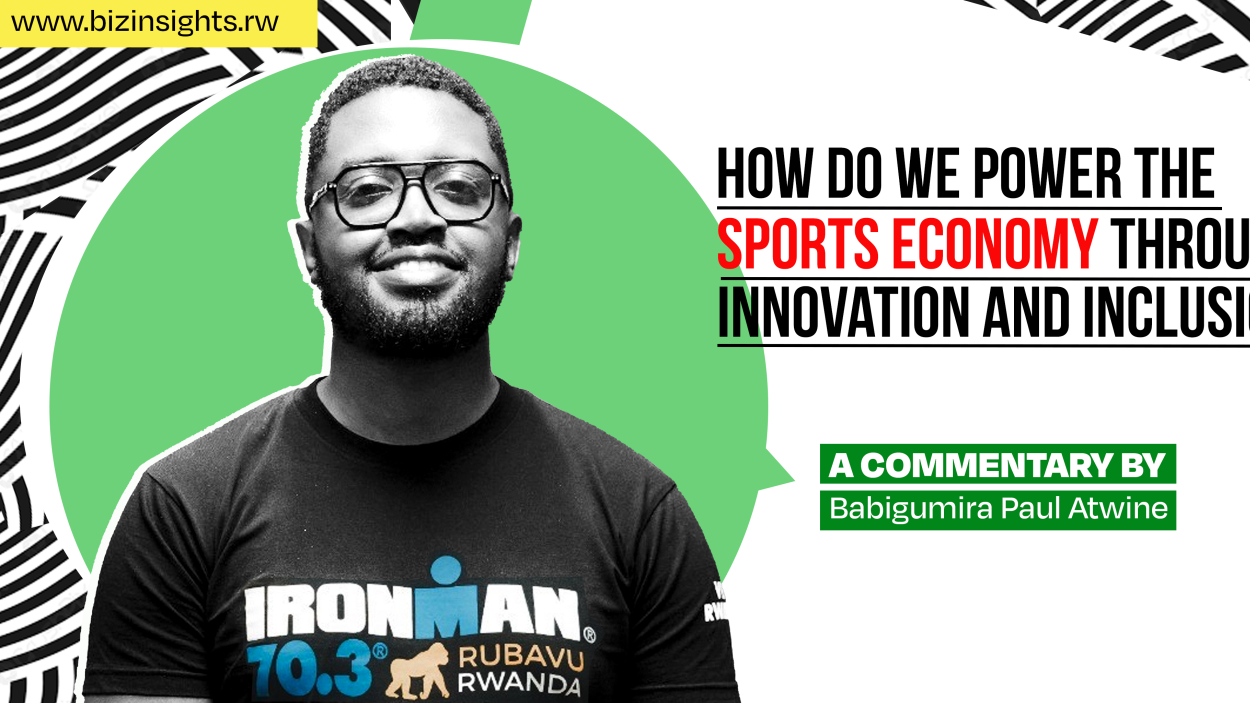How do we power the sports Economy through Innovation and Inclusion?

THE WRITER: Babigumira Paul Atwine (Graphic/ Business Insights Africa)
A COMMENTARY BY PAUL ATWINE
For the longest time, Africa has consumed what mature markets have developed for us because they focused on the right things. How can we shift from being sports consumers to manufacturing sports products for global consumption?
The Africa Soft Power Summit hosted (recently in Kigali, Rwanda) a panel that included some of Africa’s most enterprising minds in the business of sports.
The panel moderated by Michelle Moore, MA BA, featured:
- Nkechi Obi, CEO of Sport Nigeria LTD/GTE
- Natasha Camy, Co-owner of the Cape Town Tigers (BAL contenders), Founder & CEO of Referee Ready Academy.
- Kyle John Schofield Director, QA Venue Solutions (BK Arena)
- Michael Finley Head of Basketball Business Development at NBA Africa.
KEY TAKEAWAYS
- Connectivity
The more people have access to devices, the more content they can consume. This is a game changer because better content means better proof of concept and model across the continent.
- Data
There needs to be a significant data gap in the sports business. Investment is driven by data, meaning more data on the market will strengthen the value proposition for sports investments in Africa. We need to share more insights across different facets of the sports business to make the landscape more competitive and drive growth.
- Taxes
Having a sports event to tour different cities is excellent business; however, taxes contribute almost 60% of the cost. Strategic partnerships across borders would make it more affordable for business and bring sports experiences closer to the fans across borders.
- Value chain
A value chain across Africa is vital for the growth of sports businesses in Africa. Investment, capacity building, and manufacturing are the pillars on which this value chain will be built across the continent. Because of the value chain, BAL, for example, can offer the same quality experience in different cities on the continent.
- Supporting startups
NBA has created demand on the continent! How can we open a portal for startups to provide homegrown solutions to problems around the BAL and other sports in Africa.
- Capacity Building
Training, hands-on work opportunities and exposure are essential to having a local workforce and entrepreneurs to meet the demand for sports businesses to thrive.
- Shifting the focus from athletes alone
We focus on athletes without venues, facilities, capacity development, and infrastructure. Athletes require a value chain that can help them fully optimise their careers.
- Community Impact
Sports should involve and support the communities. Programs that facilitate knowledge exchange upskilling and access to income-generating opportunities in sports are the impact-driven approach sports businesses should consider.
ABOUT THE AUTHOR
Paul Atwine is a marketing and communications professional with over 12 years of experience spanning various sectors. He has fashioned himself as a sports ecosystem builder in Rwanda, designing programs for human capital development and sports entrepreneurship. He is the Marketing and Communications Director of Global Events Africa.
CONNECT WITH US:
Twitter/ X: @Afro_Insights
Instagram: @bizinsightsafrica


